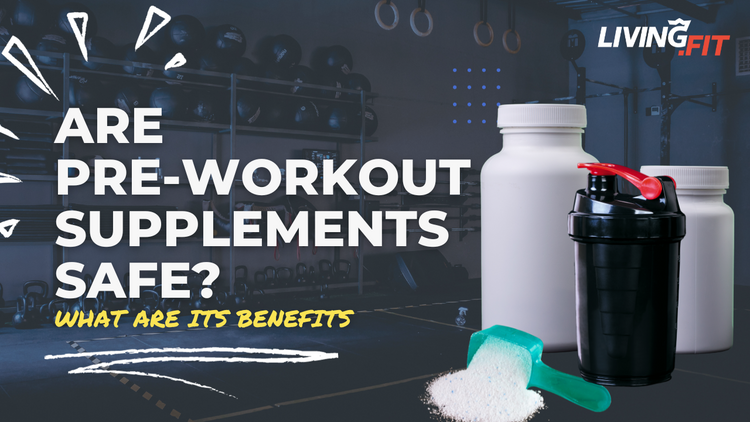C4 Pre Workout Benefits & Side Effects

⏱️ Estimated Read Time: 6 minutes
🧠 TL;DR
- C4 Pre Workout Benefits & Side Effects offers effective, accessible movements for targeted results.
- This guide is designed to help you move smarter, build strength, and stay consistent.
✍️ Summary
This post explores c4 pre workout benefits & side effects in a way that’s actionable and easy to follow. Whether you're new to this style of training or leveling up, it includes practical takeaways for your routine.
📚 Table of Contents
Preworkouts are a fun subject to discuss as it is a multibillion dollar industry that was built basically upon our dysfunction as a society regarding daily nutritional intake. Let's dive into the world of pre workout.
What Are the Benefits of Pre Workout Supplements?
Pre workout supplements use two mechanisms nutritionally more than any other. Mechanism one is vasodilation. Vasodilation is the lessening of restriction of the blood vessels. In theory, this provides more oxygenated blood to the muscles and works to increase circulation to the muscle. This is also known as the pump. This occurs naturally with exercise, as well as time in a hot tub or warm temperatures. Certain pre workout ingredients work to decrease the time it takes for vasodilation and increase the intensity of the pump as it's known.
The second mechanism is energy production or ATP. Your body is constantly creating energy, known as adenosine triphosphate, for all of its processes. Certain pre workout ingredients, which I will cover below, work to either increase energy production or decrease the substrates from energy production that makes us tired. When you combine increased circulation via vasodilation and an increase in energy production, the two can combine to increase output in workouts, leading to being able to work harder, move heavier loads, and increase the overall intensity of the workouts. Nutritionally, most pre workouts work to be very limited in caloric intake, so they serve very little nutritional purpose other than micronutrients that may be a part of pre workouts such as Vitamin C, Vitamin B, creatine, etc.
Now let's cover the list of ergogenic aids from most researched to least researched that you commonly see in various pre workouts. C4 pre workout is among the most popular and supported ergogenic aids you can get; however, it is not the only preworkout. Let me explain.
Creatine
Creatine is the most researched and supported ergogenic aid you can get; however, it is not a preworkout. Let me explain.
For explosive actions of your body, your body binds an adenosine phosphate with a creatine phosphate to create ATP. This is the fastest creation of energy in the body. This increases my high intensity exercise activity and lean body mass during training. It is incredibly safe, with no noted long term or short term pre workout side effects.
However, creatine works by being loaded into the tissues of the body not as a preworkout. Creatine naturally occurs in the body as I stated above. So understanding that loading it over time via a diet higher in red meat or by taking creatine monohydrate will result in more creatine to use in the system. It is not fast acting though via supplementation and requires it to be loaded into the system over time. So this does not qualify as a creatine pre workout, and any pre workouts with creatine in them aren't necessarily bad for you, but the creatine is to be loaded over time and not to be taken immediately prior to workout.
Per the ISSN, The quickest method of increasing muscle creatine stores appears to be to consume ~ 0.3 g/kg/day of creatine monohydrate for 5–7 days followed by 3–5 g/day thereafter to maintain elevated stores.
Beta Alanine
Beta Alanine is a non essential amino acid that has the potential to aid to carnitine synthesis. Carnitine is one of the primary muscle buffering substances available for skeletal muscle. Muscle buffering is the shuttling out of hydrogen ions in the blood stream so the PH remains stable. This keep away that "burn feeling" from onsetting as fast as it normally would and, in theory, can increase your anaerobic output in a workout.
Some studies have shown a dose of 4 to 6g of beta alanine daily over a 28 day period can increase carnosine levels. Beta alanine has been shown to increase lean body mass, increase the number of repetitions you can complete in a workout, and increase training volume. Taking too high a dose of Beta Alanine can result in paresthesia, an itchy or tingling feeling on the skin. Otherwise, there are no known negative pre workout side effects. Caffeine is likely the most prevalent ingredient in pre workout supplements. This naturally derived ergogenic aid works to spare carbohydrate use in the body and works to block adenosine receptors and the substrates of ATP production. This blocks the things that make us feel tired. This is also why you can get a caffeinated crash because those substrates don't go anywhere.
Caffeine
This is likely the most prevalent ingredient in pre workout supplements. This naturally derived ergogenic aid works to spare carbohydrate use in the body and works to block adenosine receptors and the substrates of ATP production. This blocks the things that make us "feel tired." This is also why you can get a caffeinated crash because those substrates don't go anywhere.
Caffeine has many, many researched benefits, including improving repeated sprint performance, increasing aerobic endurance via CHO sparing mechanism, increasing maximal upper body strength, as well as affecting perceived exertion levels, decreasing perception of muscle pain, and improving mood. Loads in excess of 6mg/kg of bodyweight can result in increased irritability, anxiety, blood pressure, and heart palpitations. The body has also shown the ability to build up a tolerance requiring higher doses to feel the results, which is why some people opt for a non stimulant pre workout to avoid these effects.
BCAAs/Amino Acids
So BCAAs are in fact amino acids. BCAA stands for "branch chain amino acids." Amino acids come in two types: Essential and non essential amino acids. Essential Amino acids are the following:
Methionine
Lysine
Phenylalanine
Threonine
Tryptophan
Leucine (Branched Chain)
Isoleucine (Branched Chain)
Valine (Branched Chain)
If you notice the last three, those are what we refer to as BCAAs or branch chain amino acids. All essential amino acids must be consumed from our diet. This is where the supplementation started. Research on EAAs and using their supplementation to increase muscle protein synthesis is very popular. Protein is typically rated based on its EAA count and some research has concluded that peak muscle protein synthesis is determined by EAAs. The three BCAAs (leucine, isoleucine and valine) have been singled out for their important role in muscle protein synthesis, especially leucine; however, the research is inconclusive on the role of BCAAs as oral supplementation.
What we know of leucine's mechanism is primarily found in post workout protein ingestion. In theory BCAAs may help minimize protein breakdown especially in untrained population. That being said, the research is very mixed on its use as a supplement before or during workouts. The ergogenic effect, if any, are still up for debate.
L-Citrulline/Nitric Oxide
So let me preface this section by saying that Nitric oxide isn't something you supplement. There is a such thing as nitrates that promote the uptick of nitric oxide in the bloodstream, a naturally occuring gas, but you cant actually take nitric oxide.
Nitric oxide is essential for vasodilation, stimulating hormone release such as insulin and human growth hormone. These supplements that stimulate NO release in the body include arginine, citrulline, amino acids, creatine, and various vitamins and minerals. Citrulline is one of those NO stimulating agents which is naturally occuring within the body. It increases arginine production (a precursor to nitric oxide production).
The efficacy is very mixed though. with it being unclear if the mechanism for improvements in nitric oxide production from Citrulline directly due to citrulline supplementation.
Betaine
Betaine is an organic osmolyte that works to increase endurance and performance metrics. The mechanisms are still a mystery, with some research leading to the conclusion that betaine assists with the metabolism of lactate and fatty acid substrates. it could also have some effect with the Citric acid cycle, also known as the Krebs cycle, responsible for providing the body with aerobic energy. We find it in spinach, beets and whole grains and know of its dietary importance; however its use as a supplement and its mechanism is still an unknown.
Taurine
Find me an energy drink and usually this is the first highlighted ingredient. This is an amino acid found in large quantities in skeletal muscle and plays a role in various metabolic functions. It MAY increase performance and decrease damaging effects of exercise but the research is limited to mixed.
Some studies have shown its implementation working to increase various performance measures while others have shown no significant changes in performance from it. It has positive antioxidant properties, with various hormones actions. Too much of it can result in nausea, vomiting, head ache, stomach pain, etc. This ergogenic aid has limited to not benefit as the body already contains enough of it natrually
So...
These ingredients are some of the more common ones we see in pre workouts.
Pre workout can be beneficial for some people and anyone taking a pre workout should look for clarity in ingredients, third-party tested, and ingredients supported by science such as beta alanine and caffeine. For those seeking an organic pre workout, it's important to check the label for natural ingredients. Otherwise, a good night's sleep and a well-balanced diet of carbohydrates and protein act as the best pre workout you can take!
Helpful Resources:
-
Be alerted when we publish more like this to our blog here
-
Daily workout plans here
-
Fitness Equipment like barbells and bumper plates here
-
Free bodyweight workouts here
-
Follow along with $1 video workouts here
- Try a pre workout energy drink
Want more guidance? Check out our Weekly Dumbbell Workout #1.
📝 FAQs
How often should I do these exercises? +
2–3 times per week is a good starting point for most people.
Do I need equipment? +
Many of these can be done with just your bodyweight or a single kettlebell or dumbbell.
Can beginners do these routines? +
Yes! These movements are designed to scale with your fitness level.










